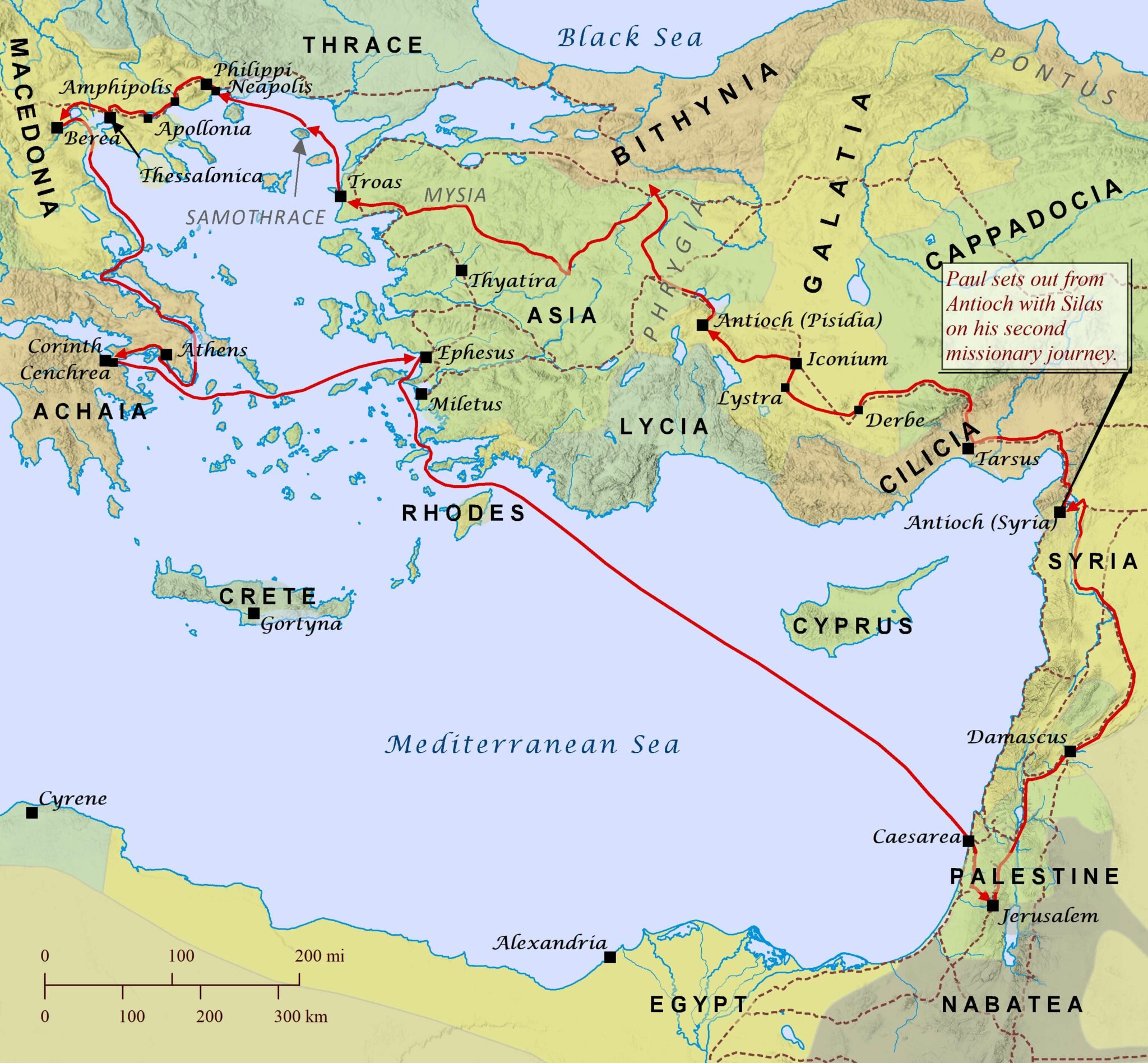Paul begins a defense of his apostleship. First he points to the fact that he brought the gospel to the Corinthian believers. They would not exist as a church without him.
Paul now turns to answer criticism of his apostolic authority that has apparently been raised within the Corinthian church. He will provide a “defense to those who examine me” (verse 3). This opposition was likely raised by the opposing Jews who followed Paul from town to town, undermining his message of God’s grace to the Gentiles (Acts 14:19; 17:13). Paul begins by asking some questions, Am I not free? Am I not an apostle? Have I not seen Jesus our Lord? Are you not my work in the Lord?
The expected answer to these rhetorical questions is “yes” in each instance. Paul is asserting that he is an apostle. He is an apostle by virtue of his appointment to the office by Jesus, and by virtue of having seen Jesus our Lord. Each of these occurred on the road to Damascus, as recounted in Acts 9 and Acts 22. Since Paul founded the church at Corinth in his second missionary journey, doubtless those receiving this letter would know well the story of Paul’s conversion and call by Jesus to minister to the Gentiles (Acts 18:1-17). Paul reminds the Corinthian believers that they are his work in the Lord. It was Paul and his missionary team that brought the gospel to the believers in Corinth. He stayed in Corinth and discipled them, so they were his work in the Lord.
By asking Am I not free? Paul makes it clear that he is under no obligation to present the gospel. He is not in the employment of anyone. He is doing his ministry as a matter of choice, as he will make abundantly clear. The word apostle means “messenger” or “representative.” It could be used for diplomats. Paul is an appointed representative of Jesus on earth. He introduces himself as such in 1 Corinthians 1:1.
It is certainly possible for a representative to be rejected, or not received. But Paul makes the point that if to others I am not an apostle, at least I am to you; for you are the seal of my apostleship in the Lord. Perhaps there are some people that don’t receive Paul as apostle. So be it, that is their choice. But the very existence of the Corinthians as believers and members of the Body of Christ is a seal of Paul’s apostleship. A seal was used in the Roman world like a signature is today. It was a sign of authenticity. The very fact that the Corinthian church exists authenticates Paul’s office of being an apostle, a messenger of God. If others don’t receive Paul as an apostle, so be it. But there is no basis for the church at Corinth not to receive him as an apostle.
Biblical Text
1 Am I not free? Am I not an apostle? Have I not seen Jesus our Lord? Are you not my work in the Lord? 2 If to others I am not an apostle, at least I am to you; for you are the seal of my apostleship in the Lord.
Check out our other commentaries:
-
Amos 9:7-10 meaning
The Suzerain God dismisses Israel’s arrogance and false confidence in themselves and says that He will shake the sinners of His people and kill them...... -
Acts 3:11-16 meaning
The people who witnessed the healing of the lame beggar follow Peter and John. Peter confronts them on why they should be amazed. Don’t they...... -
Romans 11:7-8 meaning
Israel has sought righteousness through following the Law’s rules and has failed to obtain it. Only the remnant that God has chosen have found righteousness...... -
Money and Possessions meaning
The Bible is neutral toward riches. It is our attitude toward riches and the way in which they are used that is celebrated or condemned....... -
Romans 3:8 meaning
The competing Jewish “authorities” continue their argument opposing Paul, which Paul calls slander. Paul says that their condemnation (judgment) from God is just for making......



